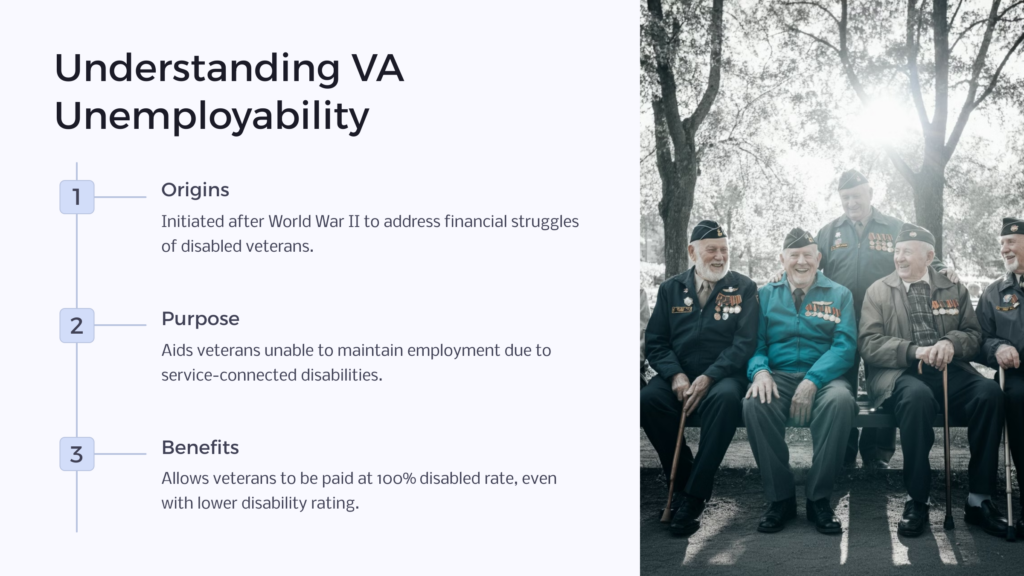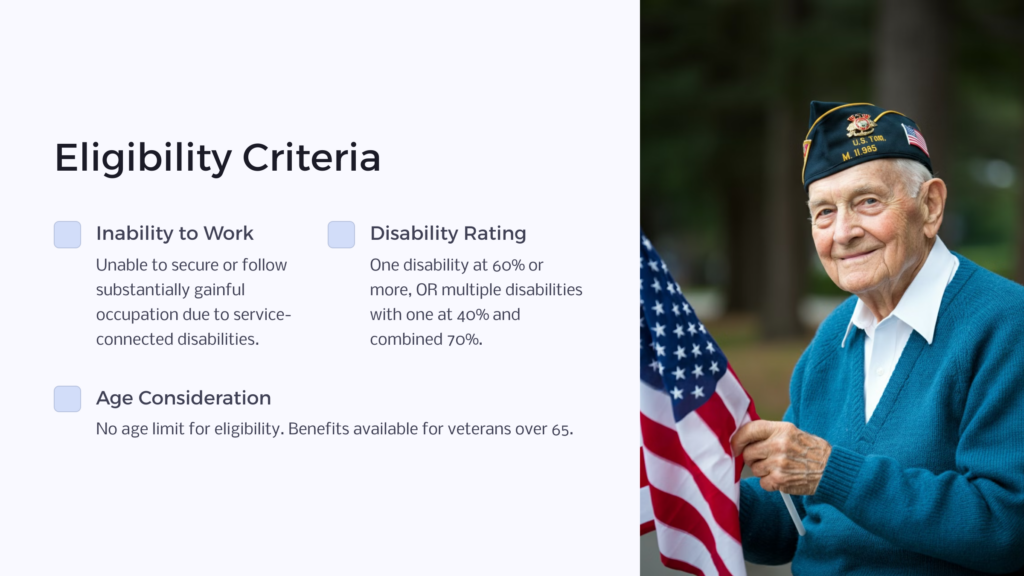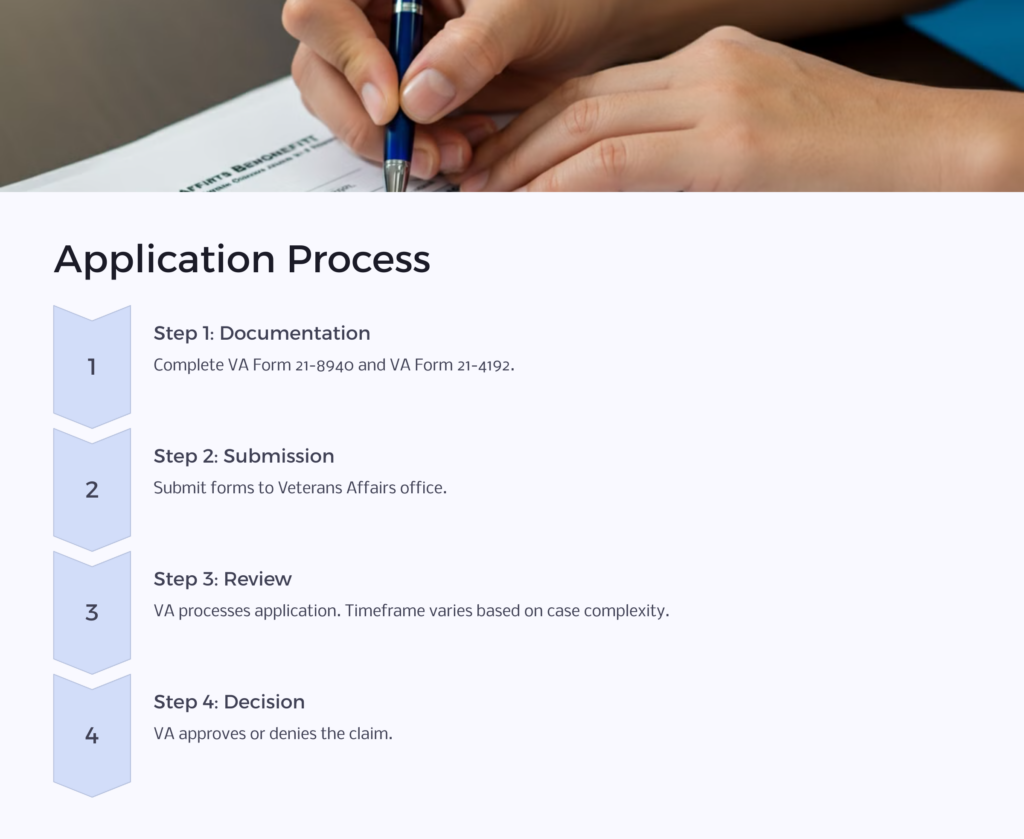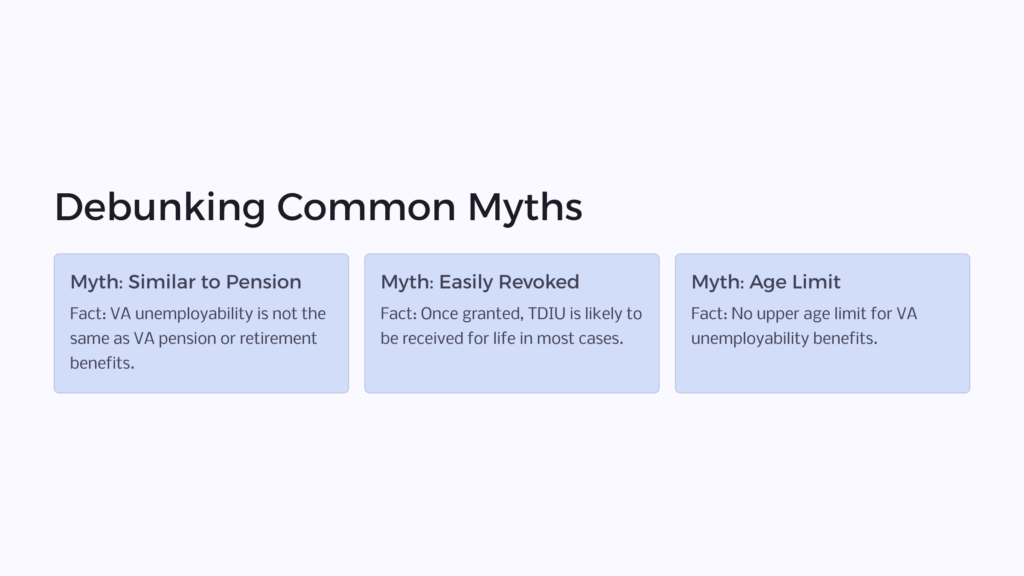VA unemployability for veterans over 65 and above is a significant topic that bears importance to elderly veterans living in the United States. The topic not only impacts the veterans but also their families, the economy of the nation, and society in general. The Veterans Affairs (VA) department, the governing body responsible for ensuring the wellbeing of veterans and providing them with necessary disability benefits, plays a central role in this context. This article aims to delve into the specifics of VA unemployability over 65, from its origins to the eligibility and application process, debunking common myths, and presenting real-life instances to present a well-rounded account.
VA Unemployability: An Overview

Understanding VA unemployability is integral to the welfare of veterans. Its roots extend back to the aftermath of World War II when recognition of the financial struggles faced by disabled veterans led to the initiation of unemployability benefits.
VA unemployability, popularly known as Total Disability Individual Unemployability (TDIU), is a part of the VA’s disability compensation program. The program intends to aid veterans who are unable to maintain substantially gainful employment due to their service-connected disabilities. These benefits allow veterans to be paid at the VA’s 100% disabled rate, even if their VA disability rating is less than 100%.
VA Unemployability: Eligibility Criteria

Eligibility for VA unemployability holds specific terms that must be met. The veteran must be unable to secure or follow a substantially gainful occupation as a result of service-connected disabilities. The criterion principally takes into consideration physical or mental disabilities that hinder their employment capacities.
A more detailed eligibility criterion suggests a veteran must have one service connected disability ratable at 60% or more, OR more than one service connected disability, with at least one disability ratable at 40% or more, and a combined rating of 70% or more.
VA Unemployability For Veterans Over 65
Even though 65 is considered the retirement age conventionally, the scene differs for veterans. Conventional retirement does not take into consideration service-connected disabilities that might stop a veteran from working, which is central to VA unemployability.
For older veterans grappling with physical or mental disabilities, regular employment might not be an option. Being over 65, these veterans are often disregarded for employment opportunities, and conventional retirement benefits might not prove sufficient. Hence, VA unemployability benefits manifest as a boon to them, providing a higher rate of compensation aligned with a 100% disability rating.
Application Process

Applying for unemployability benefits from Veterans Affairs demands meticulous documentation and patience. The process begins with completing and submitting a VA Form 21-8940, “Veteran’s Application for Increased Compensation Based on Unemployability”. Along with this, veterans need to submit a completed VA Form 21-4192, “Request for Employment Information in Connection with Claim for Disability Benefit”.
The time frame for the approval process may vary from case to case. It could range from a few weeks to several months, depending on the complexity of the case, the quality of the evidence provided, and the efficiency of the Regional VA Office working on the VA benefits claim.
Myths and Facts

Several misconceptions circle around VA unemployability, especially concerning veterans over 65. The most common one is that VA unemployability is akin to VA pension benefits or retirement benefits, which, as previously mentioned, isn’t accurate.
Another prevalent myth is that VA unemployability, once granted, can be revoked at any point. The fact is, while the VA does yearly income reviews through the IRS and the SSA, in the majority of cases, once a veteran is granted TDIU, they will likely receive it for the rest of their life.
Case Studies
Understanding the benefit of VA unemployability through case studies adds a deeper perspective. Consider the case of a Vietnam War veteran suffering from PTSD and other service-connected disabilities, making him unemployable. TDIU benefits allowed him to lead a comfortable life and seek treatment for his conditions.
Similarly, a Gulf War veteran living with a spinal cord injury received TDIU benefits when he reached 65 and had to quit his job due to escalating health issues. TDIU not only provided him with financial security but also paved the way for support services that improved his quality of life.
Conclusion
VA unemployability for veterans over 65 is a necessary program that acknowledges their service, ensuring their welfare and financial security. It is instrumental in providing them with a lifestyle that their service and sacrifices warrant. It also encourages eligible veterans or their families to consider applying for these VA benefits, given they meet the proposed qualifications.
The information detailed in this article bears the intention to foster understanding about VA unemployability over 65 and to debunk any associated myths, supplying accurate information regarding its benefits, eligibility requirements, and application process.
 Benefits.com Advisors
Benefits.com Advisors
With expertise spanning local, state, and federal benefit programs, our team is dedicated to guiding individuals towards the perfect program tailored to their unique circumstances.
Rise to the top with Peak Benefits!
Join our Peak Benefits Newsletter for the latest news, resources, and offers on all things government benefits.





















